Prof. Gil-Soo Han
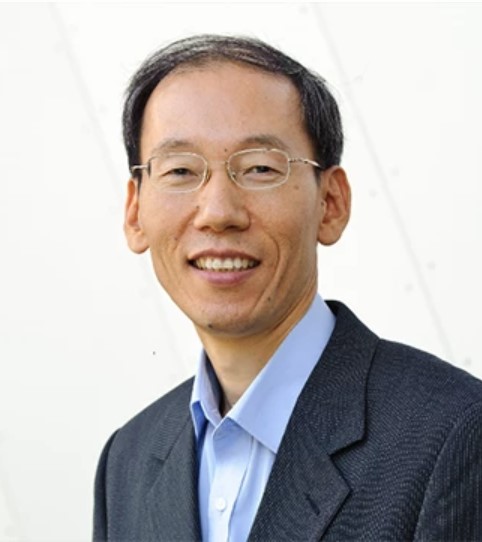
Director, Master of Communications & Media Studies School of Media, Film & Journalism, Monash University, Australia
Monday, October 28, 2024
2:00 PM – 3:15 PM, Dodd Hall, Rm 161
Along with the compressed economic development of South Korea, Korean churches grew exponentially till the mid-1990s. Enjoying the affluent Korean economy, Koreans have more disposable income, and the churches have become wealthier, which led them to deviate further from what they do and who they are. One notable phenomenon is that a significant number of churches completed the hereditary succession of head ministership. This article analyses news reports published between 2000 and 2022 to ascertain socio-cultural and economic factors, internal and external to the churches, to stimulate the phenomenon. Data analysis shows that Korean churches have blatantly conflated into the surrounding secular “Culture” to gain profane benefits—money, honour, and power, downplaying the importance of following “Christ” (Niebuhr 1951). In a slow economy, it is difficult for the head ministers to give up the “church that lays the golden egg.” Undemocratic decision-making, gender inequality, indigenized Confucianism, and shamanistic spirituality seeking prosperity have also been the catalysts.
——————————————————————
156 Royce Hall, UCLA
Wednesday 2:00-3:15 pm October 23, 2019
“Christianity in an Age of Artificial Intelligence”
Dr. Heup Young Kim
Visiting Professor of Theology, Graduate Theological Union
Emeritus Professor at Kangnam University
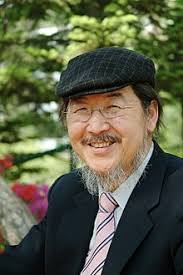
The recent development of Artificial Intelligence brings about serious issues in Christianity and theology. The possibility that Artificial General Intelligence (Strong AI) or Super Intelligence can achieve digital omnipresence, omniscience, and omnipotence challenges the traditional doctrine of divine attributes. The anticipation that AGI or ASI will soon possess superintelligence endangers the validity of Christian theologies which have adopted the logos, a cardinal Greek concept, as the root-metaphor. For the logos in the modern thought has become narrowly defined as a technical reasoning (intelligence) since the Enlightenment. This logos-centralism brought a theological reduction to perceive God as superintelligence, which could be equated with a superintelligent AI. Therefore, the advent of superintelligent AI could finish logos theologies with ultraintelligent and omnipotent God. In hi-tech places such as Silicon Valley, there already appear new techno-religious movements that enthrone and worship AI as a divine status. Furthermore, transhumanists fervently advocate techno-utopian vision that, with the maximum use of science and AGI technology, humans can achieve the paradise foretold in the Gospel, without tears, sufferings, diseases, and even death. This lecture will engage in two major tasks. 1) It critically analyzes these coming issues of AI and Transhumanism. 2) It proposes a major theological paradigm shift from the traditional theology of theo-logos to a new paradigm of theo-dao, adopting a cardinal East Asian concept of Dao (the Way) as an alternate root-metaphor for this theological revision, in and through interreligious and interdisciplinary dialogues with both East Asian religions (Confucianism and Daoism) and sciences/technologies.
—————————————————————————————————-
10383 Bunche Hal
Wednesday 3:30-5:00 pm May 15, 2019
“Rage: Underside, Blindside, and Upperside”
Dr. Angela Son
Associate Professor of Psychology and Religion, Drew University
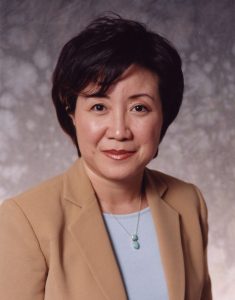
Both public and Christian understandings of rage do not recognize its constructive and vital side necessary for transformation to take place. This talk aims to revise current theology and the practice of Christianity by expanding its understanding of rage from a simplistic and narrow view of its destructive nature to a wider definition that encompasses its unrecognized and transformational aspects. Based on Kohut’s understanding of narcissistic rage, I discuss rage in this work that pertains to dispositional rage, i.e., rage manifested in life’s pattern or more likely fused into one’s character.
In this presentation, I explore the underside, blindside, and upperside of rage. The underside of rage is immature rage that takes a posture of offense manifesting in a loss of control due to one’s unreasonable and disproportionate (and thus unfulfilled) expectations. The blindside of rage is wounded rage that takes on a posture of resignation resulting in the loss of self-agency inflicted by others. The upperside of rage is mature rage that takes on a posture of resilience in response to a loss of justice in one’s life or in the plight of those who are subject to wounded rage. I then attribute theological categories of unrighteous rage, deprived rage, and righteous rage respectively to these categories of rage.
I also demonstrate the underside of rage with Robert M. Grant’s understanding of Jewish Apocalypticists which gave birth to Gnosticism, the blindside of rage with the silence of the Korean comfort girls-women who were forced into sexual slavery by the Japanese military during WW II and the upperside of rage with the courageous act of Emmett Til’s mother revealing the horrendous injustice done to her son.
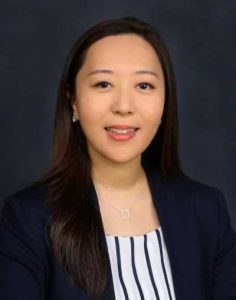 Soojin Chung, Director of Intercultural Studies and Assistant Professor of Christian Studies, California Baptist University
Soojin Chung, Director of Intercultural Studies and Assistant Professor of Christian Studies, California Baptist University
3:30-4:45 Oct. 31, 2018. Public Affairs 1222
“Hero or Villain: The Holts and the Korean Adoption Boom, 1955–60″
In 1955 the “Holt Bill” of the Congress enabled the Holts to adopt eight orphans from Korea. The Holts, evangelical Christians in Oregon, received tremendous media attention and opened doors for countless American families to seek out Asian children to adopt. Oregon Senator Richard Neuberger declared that these families were modern incarnations of the “Biblical Good Samaritan.” What explains the dramatic shift from the image of Asians as strange, despicable “pig-tailed coolies” to the image of adoptable and lovely children in need of American help? This talk examines the Holts’ unconventional method of placing adoptees exclusively in Christian homes. It expounds on the significance of their evangelical theology and the reason for the sharp contrast between their philosophy of adoption and the social workers’ policies. Specifically, the chapter examines the significance and perils of the “proxy adoption” that the Holts advocated. Contrary to the prevalent understanding that exalts Harry Holt as the sole charismatic individual who popularized transnational adoption, this study argues that prior to his activities, other key individuals were involved in transnational adoption. Moreover, the study refutes the dominant viewpoint of social scientific works that equate his humanitarian activities to militarized American imperialism.
Sung Deuk Oak, Dongsoon Im and Mija Im Endowed Chair Associate Porofessor of Korean Christianity, UCLA
Aug. 13 , 2018. Royce Hall 243
“Jerusalem of Korea versus Korea of Jerusalem, 1920-1930.”
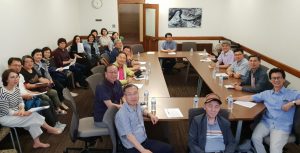
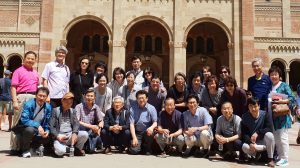
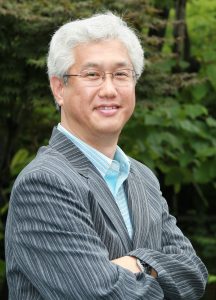 Seon-Wook Kim, Professor & Chair, Department of Philosophy, Soongsil University, Seoul, Chair, Institute for Values and Ethics
Seon-Wook Kim, Professor & Chair, Department of Philosophy, Soongsil University, Seoul, Chair, Institute for Values and Ethics
12:00-1:30 pm Thursday May 18, 2017, 243 Royce Hall, UCLA
“The Candlelight Protests, Democracy, and Christianity in Korea”
More than 1.7 million people peacefully participated in twenty candlelight street rallies in South Korea from October 2016 to March 2017. As a result, president Geunhye Park was impeached, indicted and imprisoned, and a new president, Moon Jae-In was elected and inaugurated on May 10th. Along with the candlelight rallies, there were the so-called “Korean National Flag rallies”, a kind of reactionary movement. Korean Christians were politically divided in the process. From a formalist viewpoint both rallies seem to deserve equal political value, but from a judgmental viewpoint the rallies are differentiated by their motivating political values. By experiencing these events, Korean Christians become politically enlightened, and a recent poll shows that the differentiated political views among them reflect their ages and cultural backgrounds.
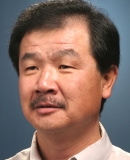 Edward T. Chang, Professor of Ethnic Studies, UC Riverside
Edward T. Chang, Professor of Ethnic Studies, UC Riverside
Oct. 19, 2016, 2:00-3:30 pm. 10383 Bunche Hall
“Pachappa Camp and Korea Mission in Riverside, 1905-1918”
Koreans who lived and worked in Riverside, CA in the early 1900s were strongly connected with the local Calvary Presbyterian Church. Official Korean immigration to the United States began on January 13 1903 when 102 Koreans came to work on sugar plantations in Hawaii. Many of those pioneering Koreans left the Hawaiian Islands for the United States mainland to find better paying jobs and living conditions. When Koreans migrated to the mainland they ended up in places like Riverside where the citrus industry was thriving. At the time, Calvary Presbyterian Church was located at 9th and Lime Streets in Riverside and welcomed members from every walk of life and of every ethnicity. (In 1936 the church moved to its current location at 4495 Magnolia Avenue in Riverside).
Many of the Korean immigrants were Christian converts and had come to the United States with the blessing of their home churches in Korea. It was logical that these Christian Koreans would seek a church they could join and seek help from. In 1905, attracted by Pachappa Camp and the Korean Labor Bureau established by Dosan Ahn Chang Ho, Koreans began to move to Riverside in large numbers. Koreans who came to Riverside presented themselves to the elders at Calvary Presbyterian Church and requested admission. The church kept detailed records of the Koreans and other ethnicities in the area in their session of minutes.
The church and its leaders and members played a vital role in assisting the growing Korean community at Pachappa Camp. The church established a mission at the camp sometime in 1905. The church provided the Korean settlement with teachers for English classes, loans and charitable donations, and guidance. Calvary Presbyterian Church is closely intertwined with the Korean American history in Riverside. Individuals including Cornelius E. Rumsey – a church elder in the early 1900s – and the church’s pastor helped the Koreans and Pachappa Camp adapt to life in the citrus rich community.
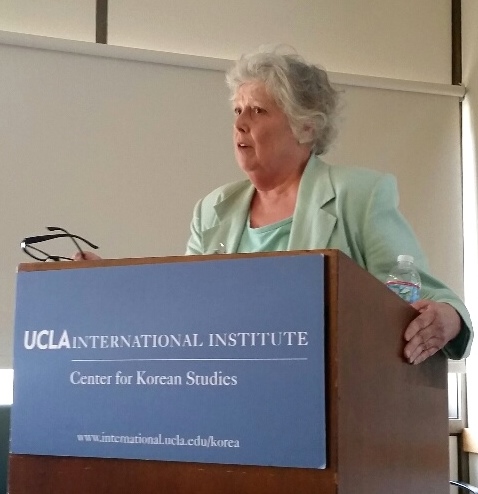 Mrs. Carole Cameron Shaw, Author of The Foreign Destruction of Korean Independence (Seoul: SNUP, 2007)
Mrs. Carole Cameron Shaw, Author of The Foreign Destruction of Korean Independence (Seoul: SNUP, 2007)
2:00-3;30 pm, May 28, 2015. 10383 Bunche Hall, UCLA
The political landscape changed in Washington with the unexpected comingof young and militant Theodore Roosevelt to the White House. By 1904,the Japanese had built a powerful navy with foreign ships and western banksin America, London and Berlin financed the Japanese attack on the RussianNavy in Feb. 1904. With the tacit backing of Theodore Roosevelt,the Japanese seized Korean sovereignty in 1905, through a ruse and forcedEmperor Kojong’s abdication in July of 1907. The majority of western missionaries withdrew from political involvement during this period and remainedsilent on the Japanese takeover of Korea, even as they continued to promotethe growth of the Christian church. Although they would begin to changetheir minds by 1912, as Japanese rule increased in brutality, the damagewas done to the cause of an independent and sovereign Korea and anhistorical blackout remained on this brief period for almost a 100 years.This paper will explore why the missionaries reversed their support for theKorean Crown in 1904 and by what rationale were these decisions made.
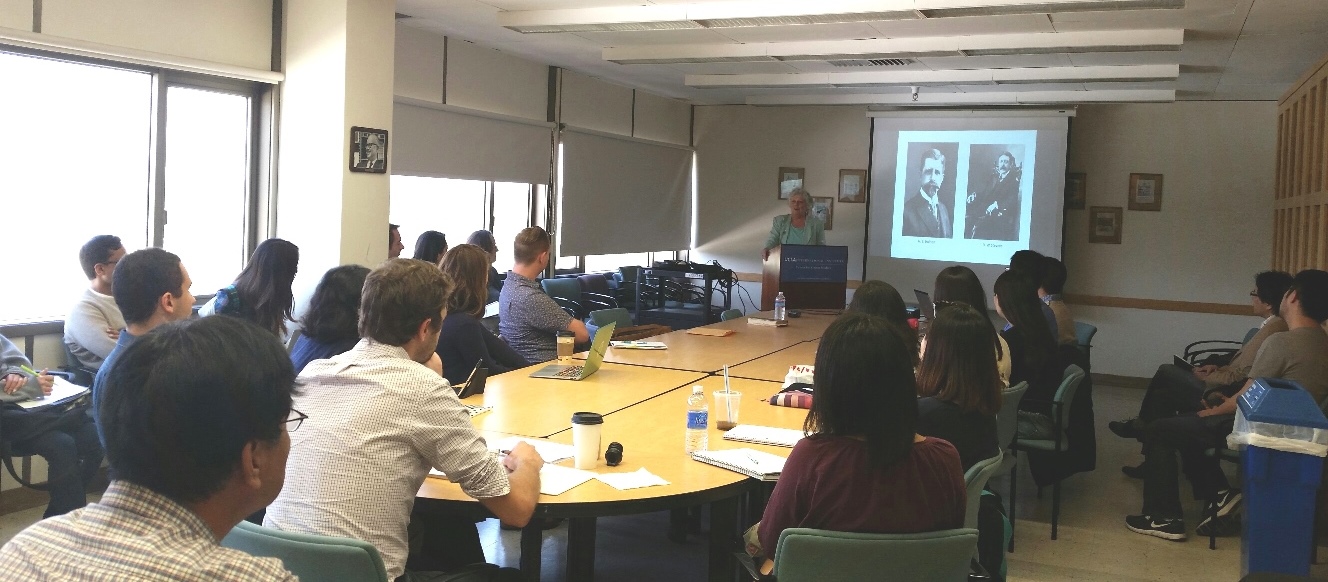
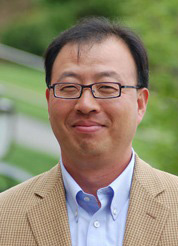 Paul C. H. Lim, Associate Professor of Religious Studies, Vanderbilt University
Paul C. H. Lim, Associate Professor of Religious Studies, Vanderbilt University
April 30, 2015. 12:30-1:45 pm Dodd 121: “Human Trafficking and Korean Christians” Human trafficking – particularly sex trafficking – has been a long-standing social justice issue for South Korea. While this issue is not at all unique to nor more accentuated in Korea (for it is a global pandemic), the local responses to sex trafficking has been varied. During this lecture, two contrasting responses to combat the issue of human trafficking will be analyzed: one more activistic and policy-engagement, and the other more incarnational and less engaging with policy-making or campaigning for its eradication. This talk will raise further issues of Diaspora Christianity and its influence on the way Korean Christianity is evolving.
 Anselm Kyongseok Min, Maguire Distinguished Professor of Religion, Claremont Graduate University
Anselm Kyongseok Min, Maguire Distinguished Professor of Religion, Claremont Graduate University
May 8, 2014. 12:30-1:45 pm, 1246 Public Affair Building: “Contemporary Korean Catholicism: Major Challenges and Opportunities”
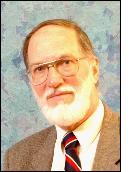 James H. Grayson, Emeritus Professor of Modern Korean Studies, School of East Asian Studies, University of Sheffield
James H. Grayson, Emeritus Professor of Modern Korean Studies, School of East Asian Studies, University of Sheffield
October 24, 2013. 3:30-4:45. 11360 Conference Room at the Young Research Library: “The Empire of Mt. Sion: A Korean Millenarian Group Born in a Time of Crisis”
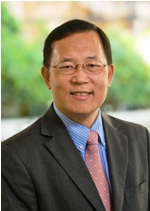 Hak Joon Lee, professor of Theology and Ethics, Fuller Theological Seminary
Hak Joon Lee, professor of Theology and Ethics, Fuller Theological Seminary
February 14, 2012, 3:30-4:45 pm, 164 Royce Hall: “Sacral Authority and Public Spirituality: Inculturation and the Crisis of Korean Protestant Christianity”
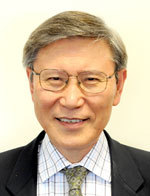 Young Chan Ro, Professor of Religions, George Mason University
Young Chan Ro, Professor of Religions, George Mason University
Thursday, May 12, 2o11, 2:00 -3:30 pm, 6275 Bunche Hall: “Korean Christianity in North America: A Challenge for the Future”
 Kim Heung Soo, Professor of Korean Church History, Mokwon University
Kim Heung Soo, Professor of Korean Church History, Mokwon University
“The Korean War (1950-1953) and Christianity: North Korean Reactions to the Pro-American Activities of the Christian Churches”
Tuesday, May 11, 2010, 3:30 PM – 5:00 PM, 6275 Bunche Hall
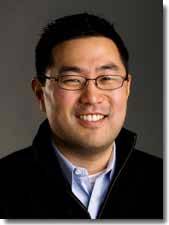 Albert L. Park, Assistant Professor of History, Claremont McKenna College
Albert L. Park, Assistant Professor of History, Claremont McKenna College
“Overcoming Capitalism: Protestant Christianity and Cooperative Living in Colonial Korea”
February 23, 2009, 3:00 PM – 4:30 PM, 10383 Bunche Hall
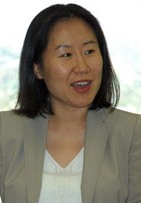 Rebecca Y. Kim, Assistant Professor, Pepperdine University
Rebecca Y. Kim, Assistant Professor, Pepperdine University
“God’s New Whiz Kids? Korean American Evangelicals on Campus”
April 29, 2008, 2:00 PM – 3:30 PM, 11377 Bunche Hall
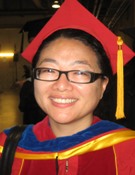 Anne Soon Choi, Luce Post-doctoral Fellow, UCLA
Anne Soon Choi, Luce Post-doctoral Fellow, UCLA
“Evangelization of the World in this Generation: Korean Students and the American Foreign Mission Movement, 1919-1945”
April 15, 2008, 12:00 PM – 1:30 PM, 11377 Bunche Hall
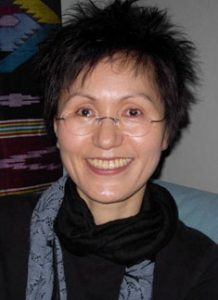 Hyaeweol Choi, Professor, Arizona State University
Hyaeweol Choi, Professor, Arizona State University
“Gender and Mission Encounters in Korea”
March 11, 2008, 3:00 PM – 4:30 PM, 10383 Bunche Hall
ker, Associate Professor of Korean Religions, University of British Columbia
“Christianity and the Religious Revolution in Modern Korean History”
Tuesday, March 6, 2007, 1:00 PM – 2:30 PM, 243 Royce Hall
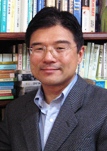 Timothy S. Lee, Assistant Professor of History of Christianity at Brite Divinity School, Texas Christian University
Timothy S. Lee, Assistant Professor of History of Christianity at Brite Divinity School, Texas Christian University
“What should Christians do about a Shaman-progenitor?: Evangelicals? Strategies for Dealing with Tan’gun Nativism in Korea”
Tuesday, February 20, 2007, 1:00 PM – 2:30 PM, 243 Royce Hall
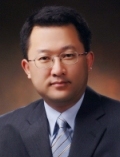 Sung-Deuk Oak, Adjunct Assistant Professor in Korean Christianity at UCLA
Sung-Deuk Oak, Adjunct Assistant Professor in Korean Christianity at UCLA
“Christianity in China, Korea, and Japan: Past, Present, and Future”
Tuesday, February 13, 2007, 1:00 PM – 2:30 PM, 6275 Bunche Hall
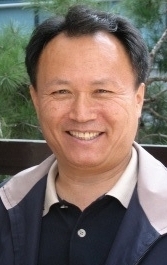 Timothy Kiho Park, Associate Prof. of Asian Mission, Fuller Theological Seminary
Timothy Kiho Park, Associate Prof. of Asian Mission, Fuller Theological Seminary
“Korean Christian World Mission: The Missionary Movement of the Korean Church”
Friday, November 17, 2006, 2:00 PM – 3:30 PM, 10367 Bunche Hall
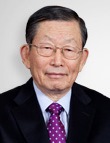 Prof. Young Ick Lew, Yonsei University
Prof. Young Ick Lew, Yonsei University
“Syngman Rhee and the Christian Transformation of South Korea, 1948-1960”
March 14, 2006
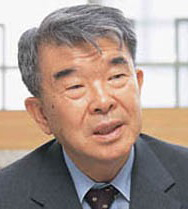 Prof. Yi Mahnyol
Prof. Yi Mahnyol
“Nationalism and Christianity in Korea”
December 6, 2005